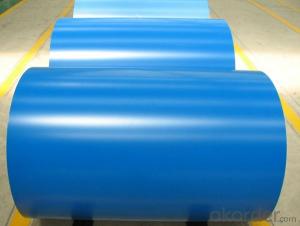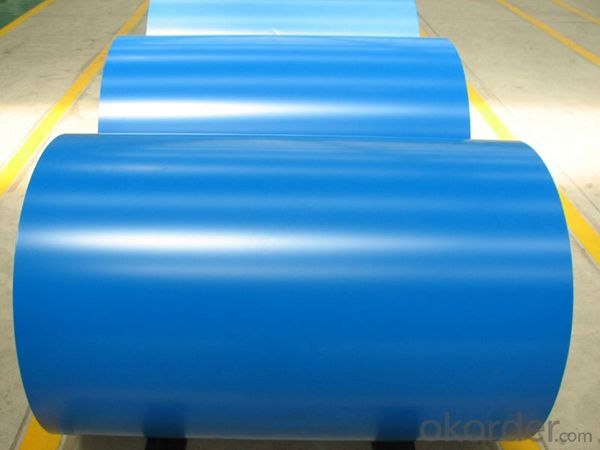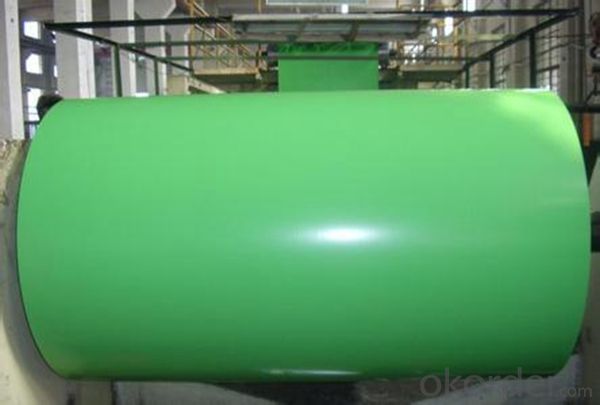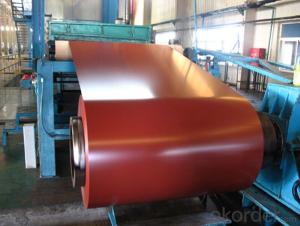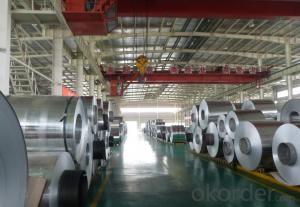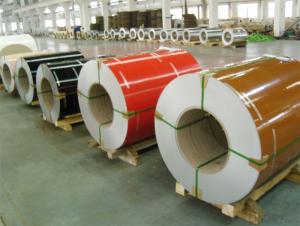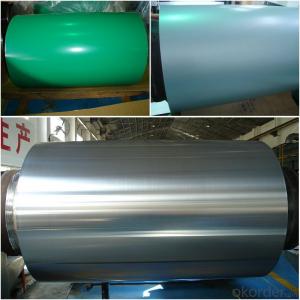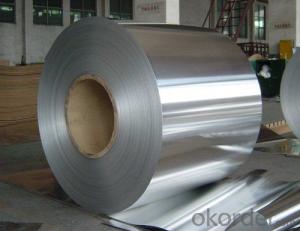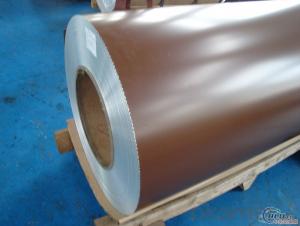Aluminum Coil Weight Per Square Foot - Aluminum Coil Sheets PVDF and PE Color Coated
- Loading Port:
- Shanghai
- Payment Terms:
- TT OR LC
- Min Order Qty:
- 5 m.t.
- Supply Capability:
- 10000 m.t./month
OKorder Service Pledge
OKorder Financial Service
You Might Also Like
Specification
1. Specification of Aluminum Coil Sheets PVDF and PE Color Coated
characteristics | Application |
1) Super peeling strength | 1) Building exterior curtain walls |
2) Excellent surface flatness and smoothness | 2) Decoration and renovation additions for old buildings |
3) Superior weather, corrosion, pollutant resistance | 3) Decoration of interior walls, ceilings, bathrooms, kitchens and balconies |
4) Even coating, various colors | 4) Shop door decorations |
5) Fireproof, excellent heat and sound insulation | 5) Advertisement board display platforms and signboards |
6) Superior impact resistance | 6) Wallboards and ceilings for tunnels |
7) Lightweight and easy to process | 7) Industrial materials, materials for vehicles and boats |
2. Application of Aluminum Coil Sheets PVDF and PE Color Coated
(1).Interior: wall cladding, ceilings, bathrooms, kitchens and balconies, shutters, doors...
(2).Exterior: wall cladding, facades, roofing, canopies, tunnels,column covers , renovations...
(3).Advertisement: display platforms, signboards, fascia, shop fronts...
3. Feature of Aluminum Coil Sheets PVDF and PE Color Coated
*Such coil is specially designed to replace aluminum ingot, due to the high export tax of aluminum ingot, the coil has better price than ingot.
*This type of coil can fit customer's remelting furnace just like ingot, no need to make any change to the production line that was previously used for ingot. The standard coil size and weight is very suitable for the feed gate of furnace.
*This type of coil causes less material wastage than ingot when remelted.
*Our coil is made directly from ore, no need to go though the ingot making process, quality is much better than other suppliers who use ingot scrap to make coil.
Be free from Oil Stain, Dent, Inclusion, Scratches, Stain, Oxide Dicoloration, Breaks, Corrosion, Roll Marks, Dirt Streaks and other defect which will interfere with use
4. Certificate:
SGS and ROHS(if client request, paid by client), MTC(plant provided), Certificate of Origin(FORM A, FORM E, CO), Bureau Veritas and SGS (if client request, paid by client), CIQS certificate
5. Image of Aluminum Coil Sheets PVDF and PE Color Coated
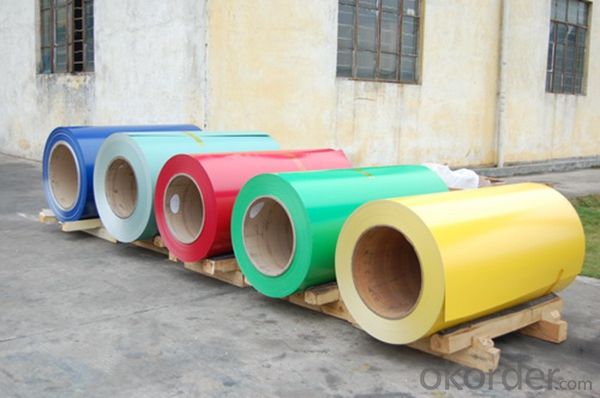
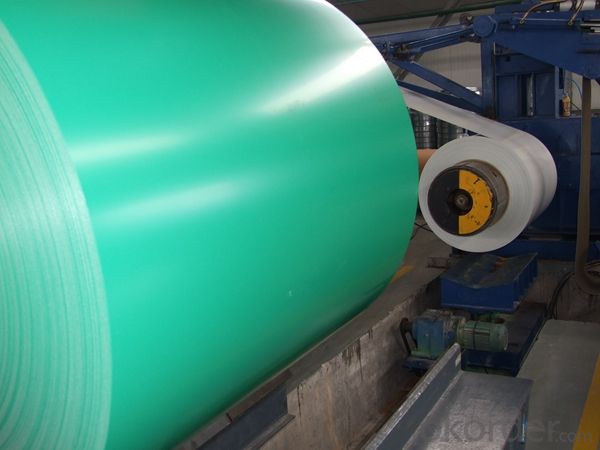
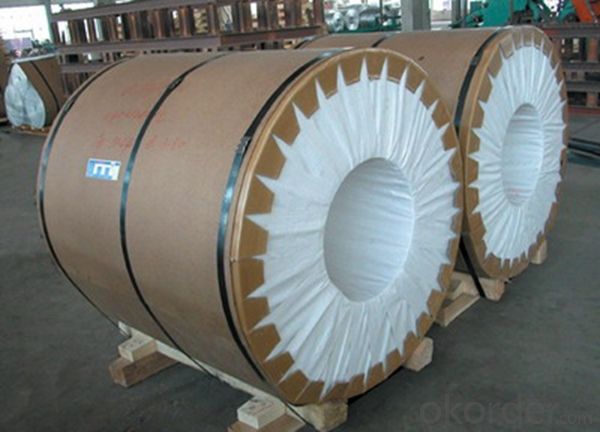
6. Package and shipping of Aluminum Coil Sheets PVDF and PE Color Coated
eye to wall
eye to the wall
with wood pallet (wooded case also available)
7. FAQ
1) What is the delivery time?
Dpends on actual order, around 20 to 35 days
2)What is the QC system:
We have QC staff of 20 persons and advanced equipment, each production is with MTC traced from Aluminum ingot lot.
3) What market do you mainly sell to?
Australia, America, Asia, Middle East, Western Europe, Africa etc
- Q: What are the potential applications of coil-anodized aluminum coils?
- Coil-anodized aluminum coils have a wide range of potential applications due to their durability, versatility, and aesthetic appeal. Some of the common applications include architectural cladding, roofing, signage, facade panels, interior decoration, automotive trim, and electronics casings. The anodized coating provides enhanced corrosion resistance, weatherability, and color stability, making it suitable for both indoor and outdoor use. Additionally, the ability to create various finishes and textures further expands the possibilities for using coil-anodized aluminum coils in different industries.
- Q: Can aluminum coils be customized in terms of thickness?
- Aluminum coils can indeed undergo customization in terms of thickness. The specific requirements of a particular application can determine the adjustment of aluminum coils' thickness. This customization is attained through the process of aluminum coil slitting, which involves cutting the original coil into narrower coils of the desired thickness. This method enables the flexibility to meet a range of needs and specifications across diverse industries.
- Q: Can aluminum coils be used in the production of aluminum wire?
- Yes, aluminum coils can be used in the production of aluminum wire. Aluminum coils are often used as a starting material in the wire manufacturing process. The coils are typically unwound and drawn through a series of dies to reduce their diameter and increase their length, resulting in a thin and flexible aluminum wire.
- Q: The export aluminum volume is CIF. If there is no insurance policy, how will the customs premium be collected?
- The customs will not charge your premium the premium you can write but if you are a refund if there will be some impact because of the tax rebate minus the freight and insurance premium so you consider the premium but you can write less Never mind if you need shipping or shipping insurance declaration business can contact me oh
- Q: What is the elongation of aluminum coils?
- The elongation of aluminum coils refers to the amount of stretching or deformation that can occur in the material before it breaks or becomes permanently damaged. It is a measure of the ductility or ability of aluminum to withstand tensile forces without fracturing.
- Q: Are there any limitations to using aluminum coils?
- Yes, there are certain limitations to using aluminum coils. One limitation is that aluminum has a lower tensile strength compared to other metals like steel, making it more prone to damage or deformation under heavy loads or impacts. Additionally, aluminum coils can be susceptible to corrosion if not properly protected or coated. Finally, aluminum coils may not be suitable for applications that require high electrical conductivity, as aluminum has a lower conductivity compared to copper.
- Q: Are aluminum coils suitable for air conditioning systems?
- Yes, aluminum coils are suitable for air conditioning systems. Aluminum coils are commonly used in air conditioning systems due to their many advantages. Firstly, aluminum is a lightweight material, making it easier to handle and transport during installation. This also reduces the overall weight of the unit, making it more energy-efficient. Furthermore, aluminum coils have excellent heat transfer properties, allowing for efficient cooling of the air. They provide enhanced thermal conductivity, which helps in transferring heat quickly and effectively. This results in better cooling performance and improved energy efficiency, reducing electricity consumption and saving costs in the long run. Aluminum coils also offer superior corrosion resistance compared to other materials like copper. This is important in air conditioning systems, as they are exposed to moisture and humidity. Aluminum coils can withstand these conditions without corroding or deteriorating, ensuring longer lifespan and reliable performance. Another advantage of aluminum coils is their affordability. Aluminum is a cost-effective material, making it a popular choice for air conditioning manufacturers. This affordability can translate to lower costs for consumers, making air conditioning systems more accessible and affordable. In conclusion, aluminum coils are suitable for air conditioning systems due to their lightweight, excellent heat transfer properties, corrosion resistance, and affordability. They provide efficient cooling, durability, and cost-effectiveness, making them a preferred choice for air conditioning units.
- Q: What is the typical coil diameter for aluminum coils?
- The diameter of aluminum coils can differ based on the particular application and industry needs. Generally, aluminum coils possess a diameter spanning from 12 to 72 inches. The precise diameter is determined by several factors including the thickness of the aluminum sheet, desired coil weight, and the processing and handling equipment employed. Various industries like automotive, construction, and packaging might have specific coil diameter requirements tailored to their distinctive manufacturing processes and end-use demands.
- Q: What types of aluminum coil are best suited for specific applications?
- <p>Yes, different types of aluminum coil are better suited for specific applications. For instance, 1100 series aluminum coil, known for its high purity and excellent formability, is ideal for applications requiring deep drawing or bending. The 3003 series is often used for applications needing good corrosion resistance and formability, such as automotive parts and chemical equipment. The 5052 series offers a balance of strength and corrosion resistance, making it suitable for marine applications and aircraft structures. The 6061 series is known for its strength and is often used in construction and transportation industries. Each series has unique properties that make it more suitable for certain applications, so selection should be based on the specific requirements of the project.</p>
- Q: What are the weight and thickness options for aluminum coils?
- The weight and thickness of aluminum coils can differ based on specific requirements and applications. There is a wide range of weight and thickness options available for aluminum coils to meet the needs of different industries. In terms of weight, aluminum coils are offered in various choices including light gauge, standard gauge, and heavy gauge. Light gauge aluminum coils generally have a thickness ranging from 0.006 to 0.025 inches and are commonly utilized in industries that require lightweight materials like packaging, electronics, and automotive components. Standard gauge aluminum coils are slightly thicker, ranging from 0.026 to 0.063 inches, and are often used in construction, roofing, and transportation applications. Heavy gauge aluminum coils are the thickest option, typically measuring 0.064 inches and above, and are frequently employed in heavy-duty applications such as aerospace, marine, and industrial equipment manufacturing. As for thickness, aluminum coils are available in various options as well. The thickness is usually measured in inches or millimeters, and the range can vary from as thin as 0.006 inches (0.15 mm) to as thick as 0.25 inches (6.35 mm) or even higher for specific applications. The suitable thickness of the aluminum coil depends on the intended use and the desired level of structural strength or flexibility required. It is important to note that these weight and thickness options may differ depending on the manufacturer and the specific aluminum alloy utilized. It is always advisable to consult with the manufacturer or supplier to determine the most appropriate weight and thickness options for your specific application.
Send your message to us
Aluminum Coil Weight Per Square Foot - Aluminum Coil Sheets PVDF and PE Color Coated
- Loading Port:
- Shanghai
- Payment Terms:
- TT OR LC
- Min Order Qty:
- 5 m.t.
- Supply Capability:
- 10000 m.t./month
OKorder Service Pledge
OKorder Financial Service
Similar products
Hot products
Hot Searches
Related keywords
